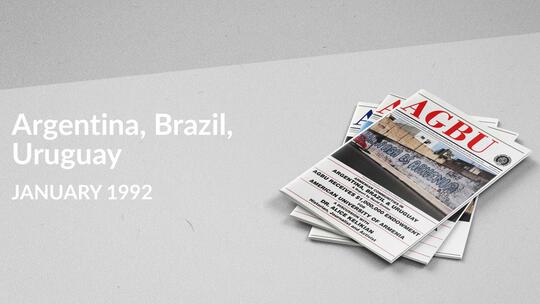by David Zenian
Even with the best of intentions, the simplest problems are sometimes the most difficult to resolve.
Old habits, personal or social, do not disappear as easily as political systems or economic orders. When making decisions, officials often function with the same suspicion of novelty as the old guard.
In the old system, all decisions were political first and foremost. Whether the subject was the building of an industrial plant or authorizing a tour by singers, the decision-maker had one primary concern, depending on his stature and personality: To guarantee that the responsibility for the decision is spread, so that he may not be accused of anything or to ensure that the project would enhance his stature and increase the chances of expanding his power base.
The change in the political system, freedom of thought, the multi-party-system, and the free press have done much to break these patterns. That is often more evident among those who led the movement, who had to challenge much within their own personalities to face the dangers of the old system, who have the most direct responsibility in the future of the republic and have a stronger drive to move forward.
But in lower echelons, among the old guard who survived the change and feel less secure in their positions, and among the new generation of leaders who, having destroyed the old structures now have the responsibility of a completely different challenge - building a state-old mental habits and behavior patterns survive and return. The survival and dominance of old patterns can happen for political as well as psychological reasons and is often unconscious.
The processes are, nonetheless, the same. Decisions are delayed: objective standards and goals are clouded by political considerations, lest someone accuse the decision-maker of having made the wrong decision, identify him with the wrong politics, or someone higher up be offended. In other cases decisions are made too quickly, without the benefit of all the information and review because it responds to a real need yet it does so in a way that it does not threaten his position, does not reveal his ignorance of the matter.
Information, of the simplest and most innocuous kind, is often the most threatening political tool, if the decision-maker does not happen to have it. It is necessary for the decision-maker to have direct responsibility for all stages of the decision-making, or to have reliable people in his stead, to ensure that the information, research and analysis phases do not lead to conclusions that may make the decision-maker look ignorant, incapable, or otherwise not qualified to continue in his position.
While these concerns exist, to different degrees, for all bureaucracies, it was particularly dominant in the Soviet system. Moreover, in most Western bureaucracies the political factor and ability to avoid responsibility are checked by objective ways of measuring results, standards of accountability, and a private sector that provides alternative standards of performance. The impact of the survival of these patterns on the government and society is, nonetheless, the same.
This does not diminish our respect and admiration for hundreds and thousands of dedicated public servants, whether from the old system or thrusted forward by the movement, on all echelons of government who are not just working hard but who are also determined to change as much as needed, within themselves and in the system, to help their people survive the current difficulties and create a better future.
To overcome some of these old patterns requires more than a change in formal structures or laws; it will also take more than one generation.
The most important thing now is to ensure that the gains made changing the political and economic structures are maintained and spread to other areas of social life and that the openness of society and freedoms achieved are used for constructive criticisms.






